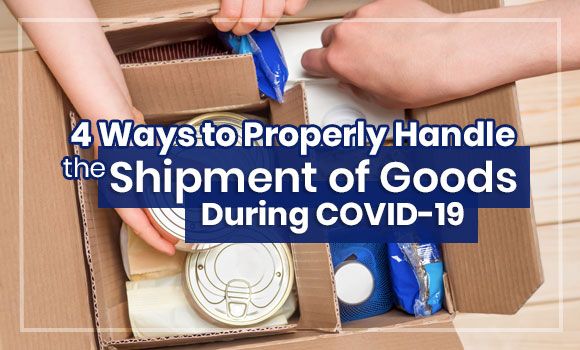Most businesses are badly affected by the coronavirus pandemic. It is also forecasted that, about 7.5 million small businesses are expected to shut down if the disruption continues. However, for some that are part of the food, medicine, and e-commerce industry, the demand is the same or even greater. In fact, online retailers have become the entire marketplace during these difficult times—making it essential for courier companies to deliver items to consumers.
And while they are convenient and safer compared to shopping in physical stores, consumers, retailers, and wholesalers are still concerned about the proper and safe management of goods. Fortunately, Worklink Services Inc., a B2B courier company in the Philippines, presents this article to help you navigate these logistics industry changes.
Read on to learn how to properly handle goods during COVID-19.
How Businesses Can Safely Handle Goods During the Coronavirus Pandemic
1. Inform Customers
The Centers for Disease Control and Prevention (CDC) reported that COVID-19 can be present in products or packaging that are shipped. However, no cases have yet to be reported that the virus has been transmitted this way due to its poor survivability on surfaces. Having said that, the virus can still be present on packaging materials such as cardboard and parcels.
Make sure to understand and communicate these risks to your customers. Urge them to open packages outside their homes, properly discard the packaging, and immediately wash their hands. By sharing this vital information with your customers, you can earn their trust and make them more likely to buy your products.
2. Set Safety Standards
Aside from informing your customers about the transmission of the virus, you should know that one of the best ways to prevent its spread starts within your own warehouse.
As a business owner, it’s your responsibility to ensure all your employees are wearing proper protective clothing such as face masks and vinyl gloves. You should also make sure that all workspaces within the warehouse are regularly disinfected.
And as much as possible, limit the number of employees reporting to work. If you can automate processes like labeling or sealing, do so in order to protect not only your employees but also your customers who will be receiving the packages.
3. Consider Parcel Shipments
During these difficult times, it’s expected that a lack of manpower (with staff staying at home to self-quarantine) to properly handle and deliver products can hamper order fulfillment.
That’s why it’s recommended that businesses should consider simplifying orders. Try using parcel shipments, instead of the usual LTL freight, to get goods in your customers’ hands as fast as possible. It’s not the cheapest option out there but it’s the best choice for businesses with understaffed warehouses.
4. Partner with a Reliable Logistics Provider
If you really want to make sure you can properly handle products during this crisis, choose your logistics company carefully.
You should work with a reputable logistics provider to ensure your goods are delivered safely and promptly at your customers’ doorsteps. You can also rely on these professionals to assist you on the off-chance you experience complaints or delays.
With the coronavirus causing rapid changes in different industries, e-commerce stores are relying more and more on logistics providers to handle the shipment of their goods. However, it is proven to be difficult considering the new implementations in place such as social distancing and border checks among others. Fortunately, there are steps business owners can take to keep orders safely moving through warehouses and truckers on the road.
ALSO READ: 7 Considerations When Choosing a Courier Service in the Philippines
Want to ensure your products are properly handled during these difficult times? WSI has been offering reliable courier services and logistics solutions in the Philippines since 1999. The company has already established itself in the logistics industry, helping various businesses manage and distribute their products. Contact us today to learn more!
Found this article informative? Check our blog for more information.


